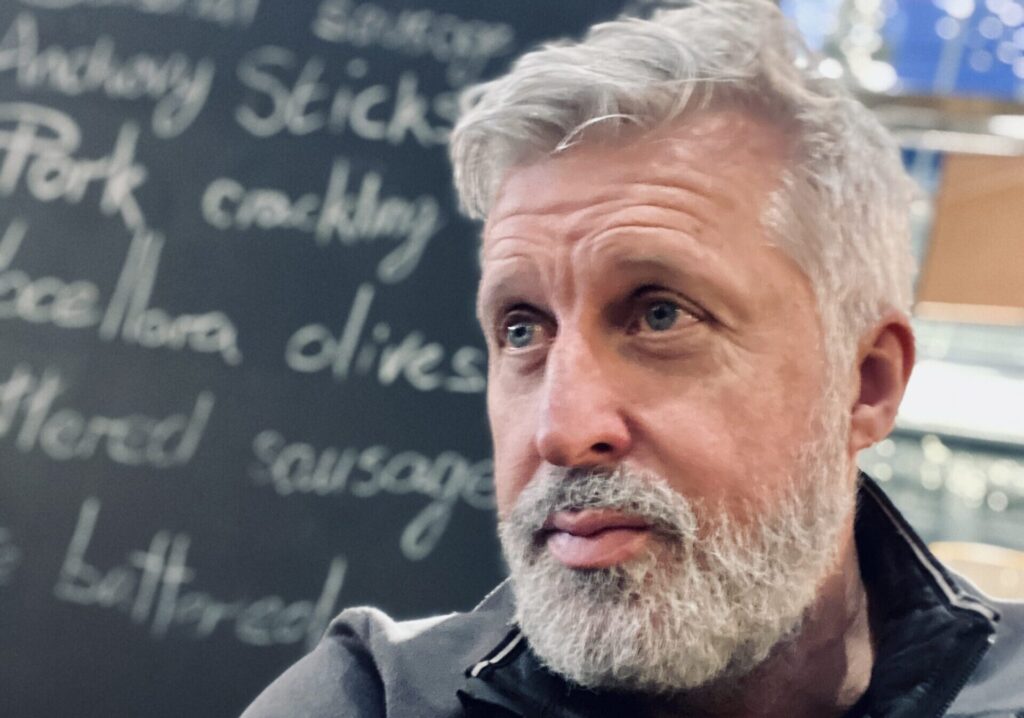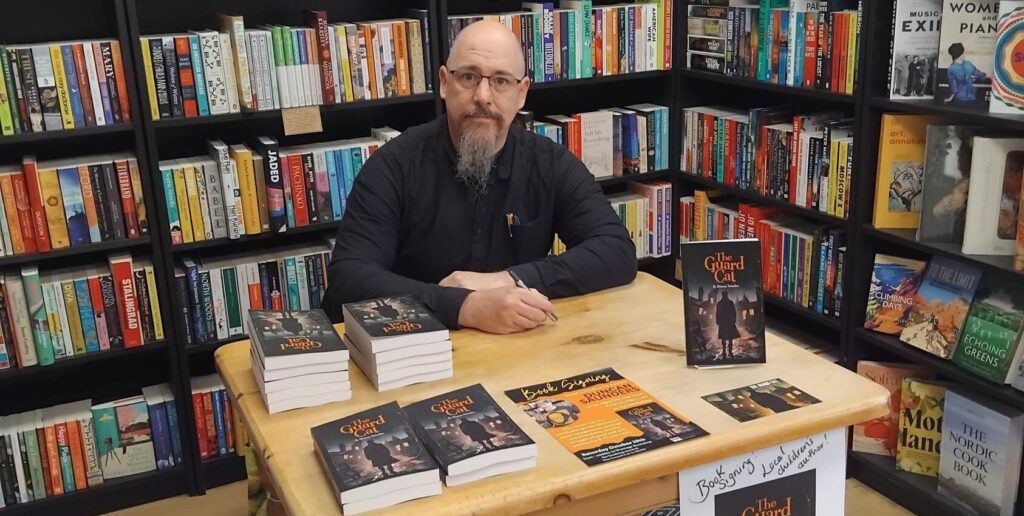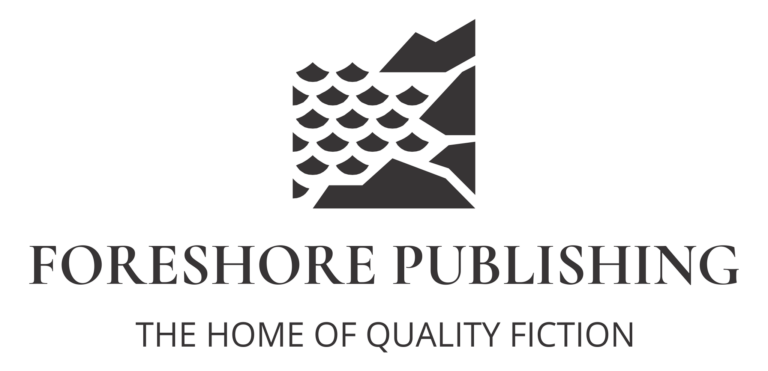
Interview: Simon Lamoon on classical music and the dark side of artificial intelligence and social media in his debut novel, The Gentleman of Bath. Congratulations on the forthcoming publication of The Gentleman of Bath. How is it all going? It seems to be going well, and it’s interesting going through the process. There are lots of bits to do to get to the finishing line of actually getting a book printed. I am very much looking forward to seeing the final product. What did revision look like for this project? How many drafts did you write in total? The first draft was very raw, and I practically rewrote it three times. I needed to get all the little scenarios set up to make a continuous narrative through the differing points of view. They aren’t exactly points of view but effectively the influence of a “mover and shaker” taking the story forward. Getting back to your question I wrote four complete drafts then a number of grammar a spell-checking sessions too numerous to mention. The novel centres on the unlucky protagonist, Richard Hoy, a newly retired banker whose previously monotonous life descends into chaos thanks to the rather diabolical scheming of his wife. The story revolves around the activities of the Bath Sharpe Quartet, the dark side of artificial intelligence and social media. What inspired you to write The Gentleman of Bath? A few years ago I was having lunch with a colleague at a financial institution near Bath when he mentioned to me that he had tickets to a ball at a big country house for himself, his wife and her friend. He was moaning that he couldn’t go as his wife had broken her leg. I replied in my glib manner, “Why don’t you just take her friend?” He calmly responded, “That would be instant divorce.” Walking back to my desk I thought, what if she wants a divorce? And breaking her leg was an excuse to get my colleague caught up in a supposed affair. It wasn’t the case in actuality. The thoughts were just a product of my over active imagination. I put that idea to one side until I was working on internet fraud systems and I realised social media was the perfect place to “stitch someone up.” Are you a classical music fan? Yes, to be honest I am a general music fan, including prog rock (which I know is uncool to admit). My children all joined youth choirs, and my son took piano up to grade eight. His increasing knowledge of music started to rub off on me and I became interested in the structures of classical music, including the different instrumentation. I have always liked the musical complexities of prog rock and the way they take influences from classical. Did you write the novel with a general outline or ending in mind? I knew what I wanted to include about different aspects of social media manipulation and the ability for AI to fake what we can see. I also knew how it was going to end. Instead of the plot being a didactic set of dos and don’ts about serious issues I thought the implied messages would be better illustrated through satirical humour. I needed to dream up ludicrous scenarios focused on certain fraudulent and manipulative activities from the real world. Where is home for you? Hertfordshire, I have lived in a small market town for the past thirty years, which is an easy commute into London where most of my work has been. I live there with my wife, three children, and two mini dachshunds. Where and when do you write? I have a very messy study from which I do a lot of working from home and writing. The writing tends to happen at weekends when I can get a good run at it. It takes me a lot of time to get into the writing zone. I can’t dip in and out for an hour or so like others seem to be able to do. What’s next for you? I am working on a sequel to Gentleman which tackles aspects of fraud that is not specifically internet based. These are to do with social manipulation, organised fraud, and account takeovers. I couldn’t include these in The Gentleman of Bath as it would make the plot unfocused. I have a few other projects I want to start which include a set of slightly uncanny short stories, which I have called “Commutables” and are stories told by a regular group of commuters. There will be someone telling a story going into town and then out. So there will be ten in total The Gentleman of Bath will be published in March by Foreshore Publishing. Photo by Josep Molina Secall on Unsplash ABOUT THE AUTHOR Simon Lamoon is an English novelist and satirist who writes under the pseudonym H. H. Bard. In a long career in the IT and finance industries, he’s worked as a designer of fraud prevention and anti-money laundering systems, among other things.

“The pace of time frightens me”: novelist Phil M. Shirley on heavy rock bands, the heroin- esque music of Bill Evans, the troubled history behind his first novel, The Rivers That Run Through Us, his new poetry collection, The Happening of Magic, and his forthcoming novel Darlene. Interview Elan Kabisch The author’s current novel is inspired by his love of the River Thames, particularly the stretch of water that runs through East London. He talks about his journey from sportswriter to novelist – and why he misses his home on the Isle of Dogs. “I keep coming back here, well, periodically anyway. I hate the place because it reminds me of when I was last settled.” We’re at the Coach & Horses pub in Greenwich market, in the company of a colourful cluster of market stalls and a cacophony of tastes and smells. English novelist Phil M. Shirley, visiting his former “thinking ground” for a reading from his latest book, the poetry collection The Happening of Magic – his first foray into the “difficult art”, and his tenth published work. It’s an irresistible read, running the gauntlet from limericks and ballads to free verse and odes and from confessional writing to urban myths and legends. It’s also a deeply personal and thought provoking work largely set in and around the Isle of Dogs, as is his first novel The Rivers That Run Through Us, and full of the author’s trademark darkly comic, and unorthodox style– so the chaotic market hall, a stone’s throw from the River Thames, makes a fittingly immersive interview location. We dart between reviews for The Rivers That Run Through Us, which have been immensely flattering, and the looming “six-zero.” “I sometimes forget just how much writing I’ve done, in terms of actual published books,” he says, “perhaps because most of them are forgettable.” This is far from false modesty, rather the honest observation of a writer driven by a “deep, unrelenting ache” to get better at “the craft.” “I’m not prolific, not in the slightest,” he says. “I envy those writers blessed with high speed and high output. I’ve got half a dozen works-in-progress, all novels, but I’m slow, and the pace of time frightens me. It’s the big six-zero at the end of this year. It’s become much, much less of a big deal than it used to be. I don’t really care anymore. In fact, in many respects, I’m happier with myself than I’ve ever been. One good thing about getting older is the option to divorce the ego. I don’t miss mine, and without it, life is an easier road to travel, although the passage of time is a relentless bastard. The last thing I remember, I was writing The Soul of Boxing in 1998 and thinking a six-month deadline was a lifetime. The next minute, someone is asking me to consider publishing an updated 25th anniversary edition.” There was a long break between his last work for HarperCollins, The Soul of Boxing, in the autumn of 1999, and his next published work, The Rivers That Run Through Us, his debut novel in 2023. It was lockdown that returned Shirley’s imagination and passion to creative writing. “I consider The Soul of Boxing as one of my better works. It was longlisted for the William Hill Sports Book of the Year. That and Blood & Thunder, which I more or less wrote at the same time, were good to me, in terms of sales and reviews,” he reflects. “But I was burned out. Eight books in three years, plus a huge amount of writing for magazines and newspapers. I went ‘corporate’ for a while, a cog in a propaganda machine.” In 2019, Shirley was offered a job ghost-writing for an oil company and ended up in East London, by the River Thames, with a view of the office, in Canary Wharf, as a daily reminder of “selling out.” And then the oil company went into lockdown after an employee experiencing flu-like symptoms was tested for coronavirus. This was February 2020. “I was grateful for the pandemic,” he says. “I fell in love with the isolation and the river. And I thought: now I can write again. A lot of other stuff, life situations, had happened. Writing The Rivers That Run Through Us was a cathartic release. Greenwich was my thinking ground and a ghost town, although you could still get a pint outside .” The Trafalgar Tavern, a Victorian riverside pub where the Thames laps up at the windows, came up with an order-by-text outdoor bar system. “A handful of rebels drinking on the cobbles, watching the river, cold and lonely and devoid of any human activity. Only the Gulls and Cormorants will witness the ritual.” The Rivers That Run Through Us, a wonderfully bizarre and haunting narrative about five tormented brothers who are grappling with love, loss, and existential dread, was initially signed by a well-known New York publisher but the project ran into trouble, some of it Shirley’s own fault and the rest, well that’s another story for another day. “I’m gagged now and was gagged then. But it worked out well, in the end.” Shirley was asked to rewrite parts of the novel to make it “less culturally abrasive.” He refused and, after a lengthy tug-of-war with New York lawyers, wrestled back the rights and found a new home for the work. “Some may call it censorship,” he says. “It is what it is.” Now 59, Shirley has spent enough time plying his trade for an indifference to politics to seep beneath his skin. A stint “working for Hollywood” confronted him with the “darker forces” of the craft, as both an author and screenwriter. “It was extraordinary,” he recalls. “Very exciting, but utterly frustrating.” His time as a contracted author for HarperCollins was “the best thing in the world,” he tells me. “It launched my career,” he says. “I was raw, and the experience fashioned me into a half-decent writer.” He longed to be a music journalist. “My dream, as a young writer, was to work for one of

Q&A: Duncan Saunders on his popular Young Adult “horror” novel ‘The Guard Cat.’ Q: It’s been almost a year since the release of The Guard Cat. How has post publication life treated you? It’s been busy. I’ve been involved in several events, signing copies of The Guard Cat, alongside my day job of teaching. Christmas has been my first break since the summer, when the publicity drive for The Guard Cat started in earnest. It’s been busy but enjoyable. Q: How would you describe The Guard Cat? What can readers expect from this story? I describe it as a supernatural adventure novel, set at Christmas in a small English village in the 1980s. It is a story full of mystery, and without giving away spoilers, cat lovers should find plenty to enjoy in the book. It’s ideal for children and young adults (and older adults) who enjoy an eerie, wintery tale. It’s the sort of book that is best read while curled up under a blanket in a comfy chair while the wind howls outside in the darkness of a winter night. Q: Writers have plenty of ideas and fragments of ideas, but not everything, “makes the cut.” What was it about The Guard Cat that persuaded you to put the blood, sweat and tears into its creation? When I was a child, we were snowed into the village where we lived a week before Christmas, during a power cut; I remember making toast over an open fire using a toasting fork and reading by candlelight. It was an experience which stuck with me and later on, led me to think “what if it wasn’t just a storm?” The story then took on a life of its own. I hope I’ve done justice to the dark and creepy atmosphere of that midwinter in the countryside. Q: Did you read much horror or weird fiction as a kid? Who were your favourite authors when you were 13 or 14? I was a voracious reader as a youngster. At 14, I’d graduated from Roald Dahl onto fantasy fiction; I’d discovered Tolkien by that time and had read a few Terry Pratchett books. I think I was reading the Dragonlance trilogy. A year or two later I discovered darker stories by authors such as Stephen King, so my love of the supernatural came a little later and it wasn’t until my twenties that I started reading more of the classic horror writers, such as Lovecraft. Q: Is it true you used to be a professional wrestler? It is; I think some of the matches can still be found online if you know where to look! I wrestled for a few years, mostly in the South West of England. I was a filthy villain called The Gallowman, who would cheat to win and used a hangman’s rope in his matches as often as he could get away with it. The storytelling and character aspect of wrestling always appealed to me; my wrestling days may be in the past, but The Gallowman as a character may one day make a reappearance. Q: Do you have a particular daily routine for your writing? What are some of the enjoyable, hardest, and strangest parts about writing for you? Being a teacher as my “day hustle” can make it a struggle when it comes to writing; my usual time is the last few hours of the day, before bed. This can be a problem if I get on a roll, as I’ll keep going and suddenly realise that it’s 3am! I absolutely love bringing characters and stories to life and hearing that someone has enjoyed something I’ve written is a huge compliment and the best feeling that there is. Q: What or whom have been the biggest influences on your writing? As mentioned previously, I love fantasy fiction; Tolkien, Terry Pratchett and later authors such as Tad Williams have all influenced my love of reading if not my writing style. The Guard Cat was influenced by classic horror such as Dracula and the works of HP Lovecraft, although it feels arrogant to mention myself in the same breath as such greats. As for my writing, I’d describe my ideas process as looking out of the window, asking “What if?” and then developing the ideas. Q: What advice would you give to other aspiring writers? Firstly, keep writing; like any skill, the more you practise, the better you get. The other thing that has helped me is to listen to all the advice you can get from people who have been there before, and then choose the parts that suit you. Everyone’s voice is unique, so use what you can to help you find yours. Q: What’s next for you? Do you intend to continue writing YA fiction? Absolutely; I’ve heard it said that a writer isn’t someone who chooses to write, it’s someone who can’t stop themselves writing. More specifically, a follow up for The Guard Cat is on its way. Watch this space for more details! BUY THE BOOK A wonderful gothic adventure about imagination, courage and friendship and the struggle of good and evil. In a small English village, cut off from the outside world during a snowstorm and blackout a few days before Christmas, something wicked is threatening life as they know it.. A trio of unlikely heroes ~ members of an elite organisation known as The Order of the Silver Shield ~ come to the rescue of the endangered inhabitants. Standing in their way is a dreadful life draining entity called The Unbeing and the cunning Dr Von Hawkfire. Will The Order of the Silver Shield be a match for the diabolic duo, or will darkness prevail? Genre: Fantasy/Young Adult fictionFormat: 232 pages, PaperbackISBN: 9781739394974 Add to Cart ABOUT THE AUTHOR DUNCAN SAUNDERS is a teacher and former professional wrestler whose first novel, Dinosaurs, Aliens and The Shop That Sells Everything (Ghostly Publishing) featured on the Amazon best sellers list for Children’s Sci-Fi. He lives in the shadow of the Uffington White Horse in Oxfordshire. His literary influences include Roald Dahl,



